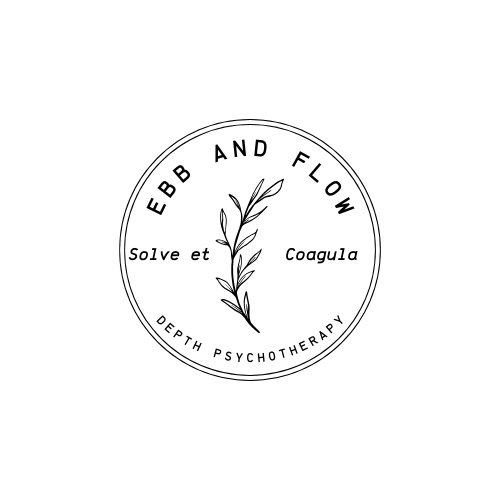How to Get Started In Therapy
Michael Ebbinghaus • July 15, 2023
Finding the Right Therapist For You

Entering therapy is a major decision. It is a substantial investment in oneself, and it is good to find a knowledgeable clinician with whom you can form a trusting alliance. Therapy is by its nature a mysterious process, and while entry into the unknown can be a vital part of therapy, a delineation of the pathways can serve to seek the clinician who is right for you. There are many choices, particularly here in Austin, and the overwhelm of option is one that stifles many who are otherwise interested. In this article I’ll discuss how to narrow your focus, discuss how to find a great therapist within your budget, as well as explore the common modalities as they relate to therapeutic goals.
Beginning Therapy
Psychotherapy is a major commitment of temporal, personal/relational, and financial resources. Our world moves rapidly, and the time and money needed to see a therapist can be daunting. Thankfully there are several ways that systems and clinicians increase access.
Using Insurance
If you have a health insurance policy, there is a likelihood that you can see a clinician in network with your insurance and pay either a copay or a coinsurance. Private pay for LPCs (licensed professional counselors) and other master’s level counselors averages roughly $150/hour, with psychologists averaging around $180/hour. Insurance can help whittle this down to anywhere between $10-30/hour, depending on your policy. If your therapist is not in network with your plan, there is the possibility they can submit superbills to you or your insurance company. Insurance can then reimburse a portion of the cost.
Sliding Scale and Training Clinics
Therapists differ in their fees, and it is not uncommon to find folks that charge more modestly, on the order of $60-80/hour. Some clinicians offer a sliding scale to help meet financial strain, and will prominently advertise it on their websites and Psychology Today
pages.
Training clinics offer another opportunity for low-cost care. These clinics, like Capitol Area Counseling, offer free and low-fee therapy by licensed clinicians, associates (provisional licensees), and graduate students. While there is certainly a tradeoff with regards to experience, graduate students still can make excellent therapists. While they do not yet have the experience, they are enmeshed in their own inner work and digesting their sessions through direct supervision, group supervision, and personal reflection and inquiry. Likewise associates are discussing their material with licensed clinical supervisors. The relationship between the therapist and the client owes a great deal to the success of psychotherapy, and in this regard many aspiring and new therapists are already gifted and aware.
Quick Tips
- Find therapists that take your insurance, offer a sliding scale, or consider a local training clinic to ease financial burdens of therapy
- Consider if you might benefit more from virtual options or an in-person approach
- Find a therapist who is curious and open, and with whom you feel safe
- Compare treatment modalities and healing philosophies to narrow your final decision
Finding the Right Therapist
Assessing your financial capability is a great way of limiting the field of clinicians. Other limiting factors to be considered are whether you would like in-person or virtual sessions, which varieties of psychotherapy you are interested in, and considerations for the background and identity of the therapist.
In-Person or Virtual?
There are advantages and disadvantages to both in-person and virtual sessions. The former’s greatest strength is the embodied and ritualistic engagement, some might say a sort of pilgrimage, to a closed comfortable office where one opens the gateway to one’s heart and mind (clearly I have some biases here). This ritualistic aspect is not necessarily absent in virtual therapy, but it does make it easier to easily jump from one thing to the other or to otherwise consider it with lesser gravity.
In-person emphasizes the relational aspects of therapy, whether one works with short-term behavioral treatments or longer-term analytic/relational treatments. Each person gets a better sense of the other, from their posture and gait, scent, and full-bodied presence, highly preferable to a bust on a screen. While deep bonds can form across distance, it cannot quite achieve the direct experience.
In our fast-paced world, it is often difficult to set aside enough time and find someone near enough so that we do not have to intensely reorganize our lives. In-person therapy necessitates commuting to and from the office. Therapists also tend to be clustered in urban areas, making it nearly impossible to find a therapist in rural places. Virtual therapy’s greatest virtue is its ability to increase access to many that would not otherwise be able to attend therapy. This is true for those with physical and practical constraints as well as those that have any social or relational anxiety.
Identity of the Therapist
There are some important considerations to make in regard to the person of the therapist. I find that ethnic and social identity runs secondary in importance to the outlook and philosophy of the therapist, the degree to which they do their own inner work, and to what degree they are identified with their role as therapist. As Ram Dass used to say, “Don’t go to someone that thinks they’re a therapist.” What he meant by this is don’t go to someone who is totally attached and identified with their position as a healthy helper helping a sick individual. A good therapist will acknowledge their shadows, including this crucial one of the healer or helper, and will be active to limit their authority and instead support the process of the client.
That said, there are social and personal realities to consider. Members of marginalized groups may fear therapy due to past negligence and exploitation from the medical establishment as well as (valid) fears of being erroneously pathologized. For this reason, members of these groups often seek out others who identify similarly. This also helps to create a ground of shared experience, and the empathy of someone that shares the particulars of our personhood can be a tremendous gateway to healing, self-acceptance, and self-discovery.
“Don’t go to someone that thinks they’re a therapist.” - Ram Dass
In addition to seeking out therapists that are similar in these ways, we may also wish to work with people who do not remind us of our victimizers. This explains in part why women are more likely to request a female therapist. If physiological safety, or safety within the person’s body, has not been reasonably established, having a basic sense of safety with the clinician is crucial. When it is tolerable, however, working with someone that reminds you of those that wronged you can be one of the most powerful gateways to healing.
Healing Philosophy
This brings up a crucial point regarding the therapeutic process that is pertinent to our discussion. Therapists place a great deal of emphasis on creating safety and acceptance for their clients, however this is not the sole aim of therapy. In addition to creating safety, the therapist is also responsible for guiding the client’s awareness and helping them understand the way in which they pattern perceptions. This necessarily includes the therapist challenging assumptions and perceptions of the client, particularly those which seem relevant to the client’s treatment goals and relational issues. Therapy is ultimately about undermining limited identifications of self and initiating a journey of self-discovery that will hopefully last for all time.
If a therapist offers blanket acceptance, little good therapy can be done. The clinician has already assigned themselves the role of professional enabler. It is possible to be both curious and challenging, allowing the client’s own faculties to work themselves out. This light playful touch is the surest sign of a talented clinician, one who can step into the unknown with the client.
Therapeutic Modalities
While there are countless schools of therapy, we can reasonably divide them into three arms based on their goals. There are the behavioral treatments which are optimized for shorter-term treatments on specific problems, and generally focus on the validity of the individual’s thoughts and assumptions, and working from that plane. The other are what I will call the depth psychotherapies, as they dive further into the ocean of psyche of which thoughts are the surface waves. This reveals my bias towards the latter, but the results are in: behavioral therapists on the whole hire depth therapists, while depth therapists go to other depth therapists.
Behavioral Psychotherapy
Behavioral treatments focus more on what can be objectively perceived, namely thoughts and actions. They look to examine the dissonance between a person’s thoughts and actions, and through this exploration seek to create more objectively based thoughts and beliefs. Such structured skills can be helpful in developing ego structure from those presenting with personality disorders and emotional overwhelm. While they can provide short-term relief, positive coping skills, and influence healthier decisions, these benefits tend to deteriorate in the absence of a longer-term relational treatment. As we are working with the surface of the ocean and not the deeper currents, the surface patterns must be maintained by habit and practice, and inevitably this falls off once the client stops meeting with the therapist.
Therapists specializing in this field will advertise that they practice cognitive behavioral therapy (CBT) or another evidence-based method. If you struggle with emotional overwhelm, someone practicing dialectical behavioral therapy (DBT) could be enormously beneficial, especially if they use it in the context of a broader relational or depth treatment. While eye movement desensitization and reprocessing (EMDR) can be considered a behavioral technique, its ability to liberate stored trauma for conscious processing is one that requires a great deal of skill on the part of the therapist and sufficient stability within the client.
Depth Psychotherapy
When the individual is stable enough, when there is enough of a self there to start prying it up, as it were, depth psychotherapy can begin. While this is obviously not a discrete stage, depth psychotherapy operates under the hypothesis that unconscious identifications and assumptions rule the personality, and it is by exploring our unconscious that we resolve inner conflicts, develop stronger and more authentic identity, and derive tremendous energies from the base layers of the psyche in which to drive our work and further self-exploration.
Depth psychotherapy is, by its nature, mysterious. I must confess that it is only after more than five years’ experience and study that I can capture the first glimpses of understanding as to the process, an understanding I know will never be complete. The Self, after all, is also basically mysterious, and Self-exploration is the broad aim of these therapies. I differentiate between little-s self to mean the ego, the “I” of experience, our limited identification with ourselves, and capital-S Self to mean the Highest Self, the Self we are becoming, which is also the main investigation in all paths of spiritual development.
There are many forms of great relational/depth psychotherapies going under many different names. The more relational depth therapies will be those clinicians who advertise they are Rogerian, Adlerian, Relational or Person-Centered, Gestalt, and those utilizing the Neuro-Affective Relational Model (NARM). Therapists emphasizing relationship to Self will describe themselves as Jungian, Freudian, transpersonal or humanistic, integral or eclectic.
While entering therapy can seem like a daunting process, the value derived from self-exploration and discovery that psychotherapy cannot be understated. Ultimately we obtain higher consciousness, freedom from our past and enhanced agency in the present, more full-bodied living, and the pursuit of our deepest passions and interests. It also makes us more conscientious participants in this grand play called the world, and therein lays the potential to transform the trauma-inducing inefficiencies of our social systems.
Please share this article if you found it helpful.
Work with me in depth psychotherapy.
Schedule a free consultation.
Follow me on social media
for updates and fun, authentic content.


